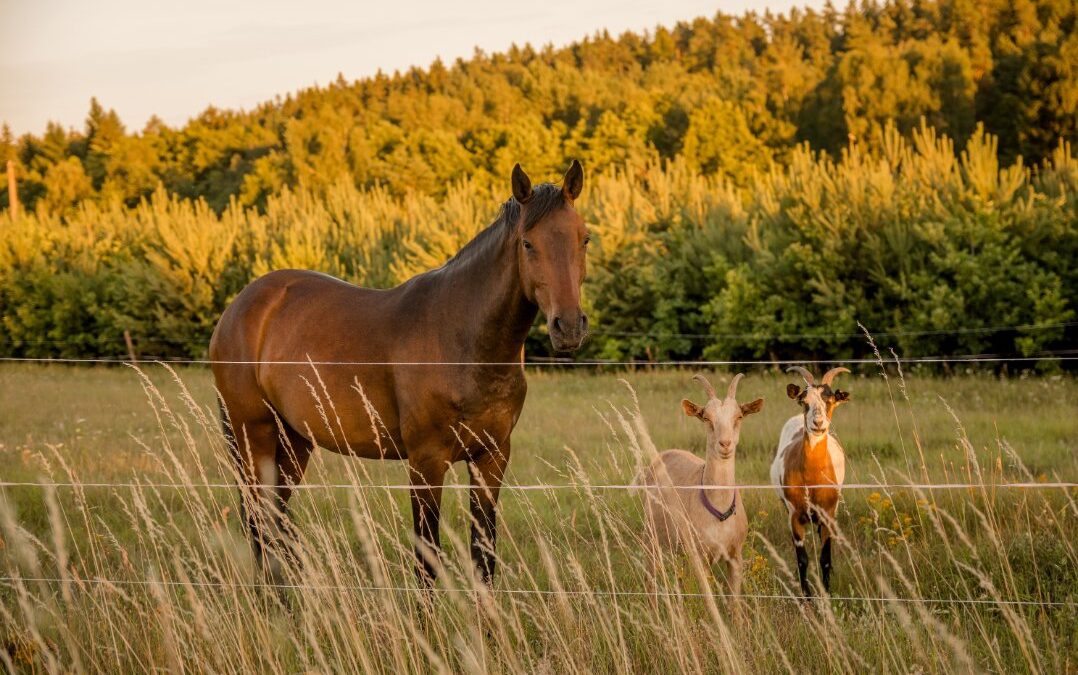At Continental Animal Wellness Center, we understand the unique challenges and rewards of caring for horses and goats in Northern Arizona. In this blog, we will explore key aspects of maintaining optimal health for your horses and goats, including vaccines, dental care, hoof care, and how often you need to see us for a checkup. Follow these essential goat and horse health care tips from our trusted equine vet in Flagstaff, AZ.
How to Take Care of a Horse
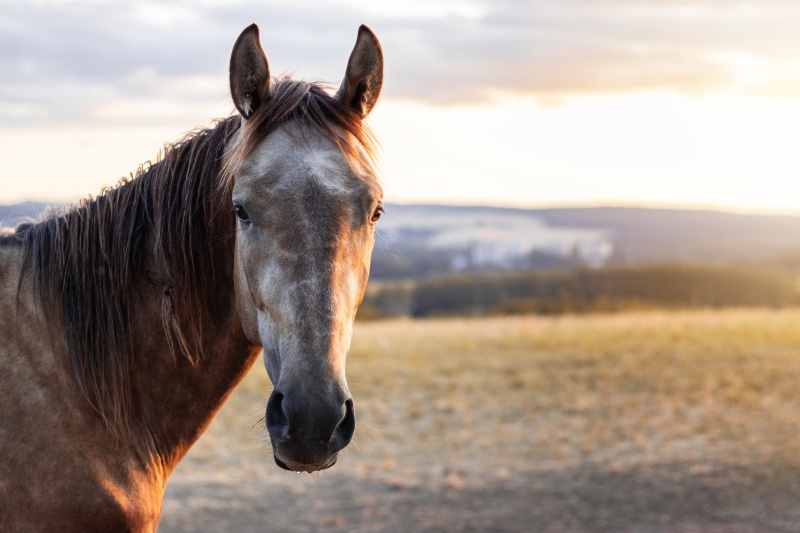
What Vaccines Do Horses Need?
The first essential step for proper horse health care is vaccines. Every spring, our horses should be vaccinated to prevent major horse health problems. We vaccinate our horses in the spring because most of the things that we’re trying to vaccinate and protect our horses from are actually transmitted through vectors, meaning mosquitoes, flies, and other insects. We want to get our horses’ immune systems primed and ready for those diseases before those insects start coming out from the winter. So, spring is the perfect time to do that.
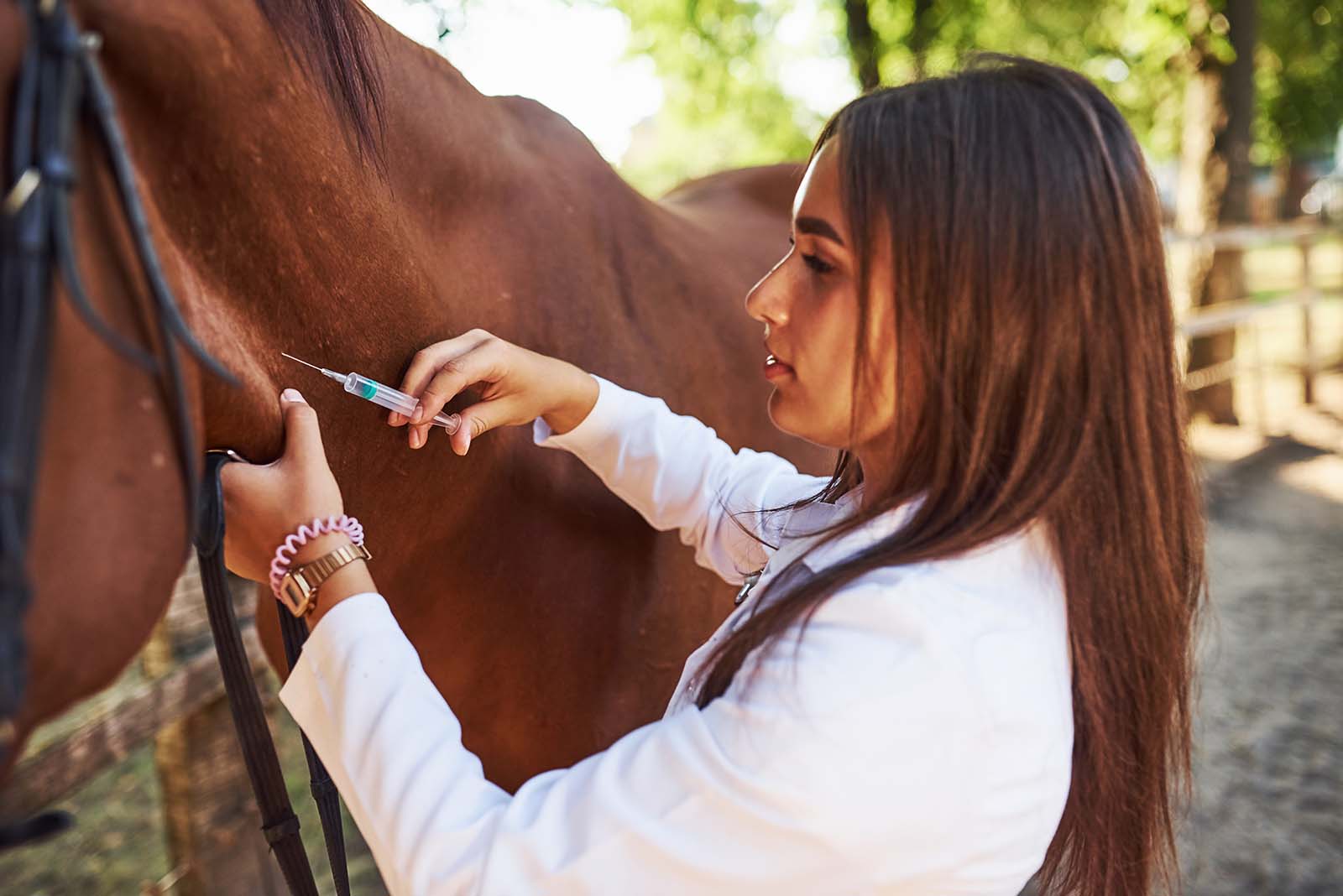
Four-Way Vaccine
The four-way vaccine, often referred to as the “core vaccine” for horses, is a crucial component of equine health care. This vaccine protects horses against four potentially serious diseases: Eastern equine encephalitis (EEE), Western equine encephalitis (WEE), tetanus, and West Nile virus (WNV). It’s very important for your horse to get this vaccine every year in the springtime.
Tetanus
Tetanus is a very important vaccine to keep your horse up to date. Clostridium tetani is a bacteria that can cause paralysis and tightening of the muscles. We can see that very commonly in our horses and our ruminants, especially after they have an injury and a break in the skin. That’s how that bacteria gets into their body system. It’s very important for us to administer yearly vaccines for tetanus on our horses. If your horse happens to get cut, and it’s been more than six months since they’ve had that tetanus vaccine, it’s important for us to booster that at that point as well.
West Nile Virus
The second vaccine we use is the West Nile virus. That’s transmitted through mosquitoes. Again, every spring, your horse should get a West Nile booster.
Rabies
The last vaccine is rabies. The rabies vaccine in horses is not government-regulated like our dog vaccine is. So, you will not expect to get a rabies tag to put on your horse’s halter. Again, it’s very important that we keep our horses vaccinated for rabies. However, there is a lot of wildlife in the area of Flagstaff that our horses are exposed to that potentially could transmit rabies to our horses.
The thing we worry about with humans is that if our horses come down with rabies, a lot of us are handling their mouths, handling their saliva. Rabies in horses can look just like colic, so a lot of times, multiple people, vets, and staff at the barns will handle these horses before we get that diagnosis of rabies. There is potential for a lot of people to be exposed, so it’s very important for us to keep our horses well vaccinated.
How to Keep Your Horse Parasite-Free
It’s very important for us to keep our horses parasite-free. If left untreated, parasites can cause a range of health issues in horses, including weight loss, colic, diarrhea, and even more serious conditions. In the past, vets would use multiple different kinds of dewormers on a rotating quarterly basis. Today, we can avoid unnecessary dewormers with bi-annual fecal sample checks.
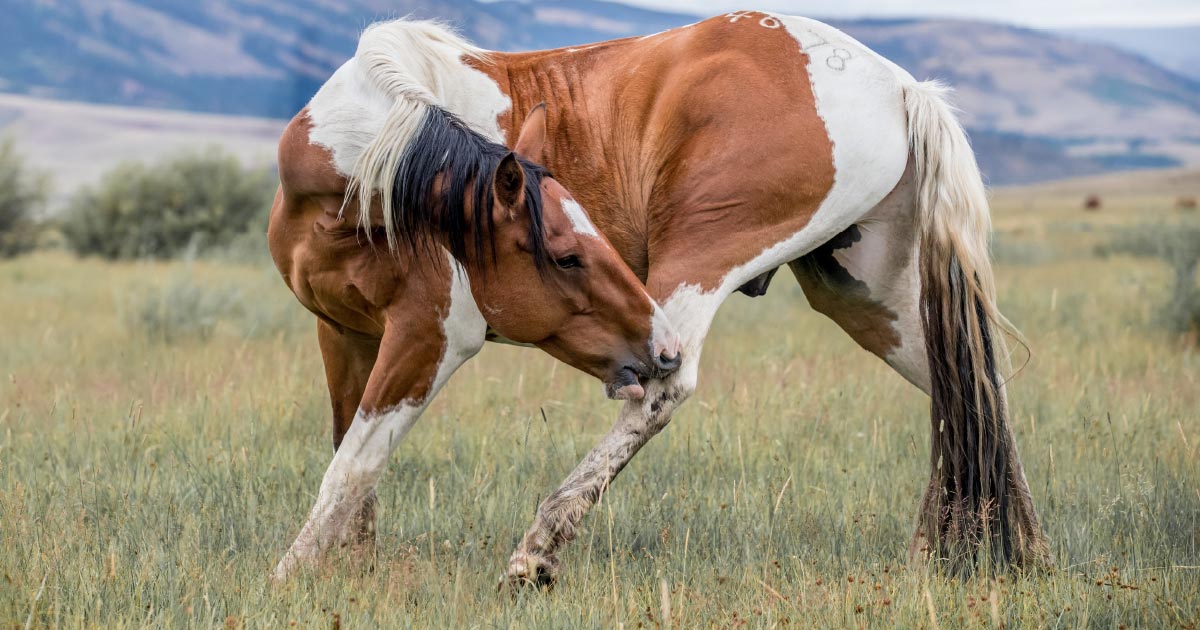
Check Fecal Samples
The American Association of Equine Practitioners(AAEP) recommends checking a horse’s fecal sample twice yearly. A good schedule would be to check fecal samples once in the spring and once in the fall. Most horses are going to come back fecal negative, meaning they don’t have any parasites that they’re shedding. If that’s the case, your horse does not need any dewormer.
The other thing for you to know with people with multiple horses at their house is that there may be only one horse on your property that’s shedding any parasites. If that’s the case, then just that one horse needs to get dewormed. We don’t need to de-worm the whole paddock of horses. Our trusted team will check stool samples on each of your horses to determine the next steps. Learn more about strategic deworming.
Checking Your Horse’s Teeth
It’s important to check your horse’s mouth regularly to ensure its teeth are worn evenly and there are no sharp, painful areas. A float is the process of filing and smoothing a horse’s teeth by a veterinarian or equine dentist.
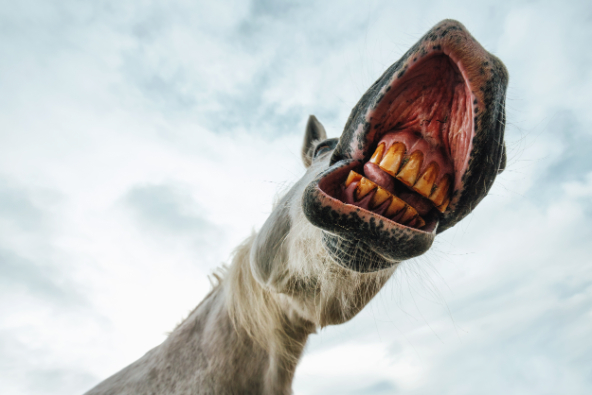
How Often to Float Horses Teeth
Typically, it is recommended to float teeth in horses on an annual basis. Some horses that are young and have missing teeth or malocclusions may need more frequent floating in order to keep their mouths functional. It’s crucial to examine the mouths of senior horses to ensure there are no loose teeth that could cause discomfort, difficulty eating, or weight loss.
Horses are constantly growing teeth, and because they are constantly growing teeth, they can wear their teeth differently depending on their anatomy, what they’re eating, and what kind of dental work they’ve had in the past. So, it’s very important for us to get in your horse’s mouth and check to make sure that they’re comfortable and all those teeth are wearing normally in their mouth.
Signs of pain in your horse’s mouth would be dropping feed, dropping weight, because they’re not able to chew very long, they have changes in their musculature on their face, they’re throwing their head when you put the bit in their mouth to ride. If you notice any of those signs, it’s time to schedule a float with our equine dentist. We have the ability to perform equine dentistry procedures both in our clinic and also in the field using our mobile stocks.
How to Take Care of Goats
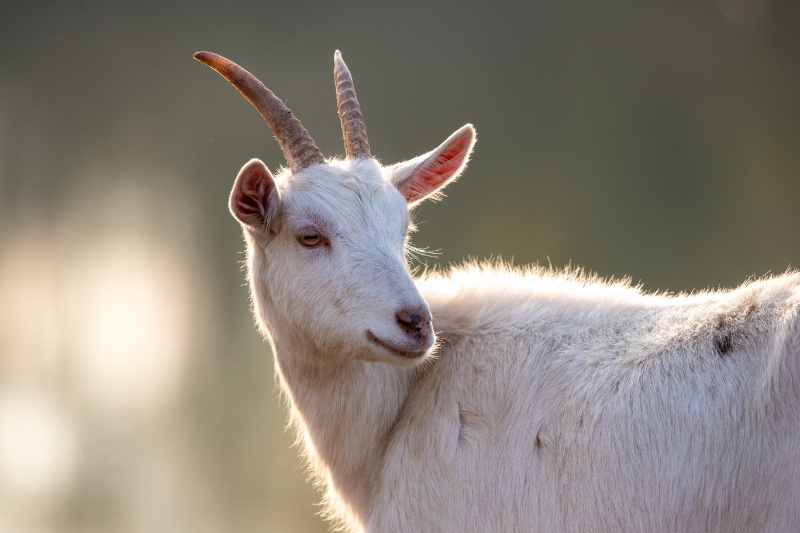
Let’s not forget about our goat friends! As we’re out talking about how to care for a horse, it’s a good reminder that our goats need yearly checkups as well.
What Vaccines Do Goats Need?
We vaccinate our goats every year for Clostridium C and D and give them a tetanus vaccine. It is also a very good idea to keep your goats well-vaccinated for rabies.
Goat Hoof Care
While our equine vet is vaccinating your goats, we can check their hooves. Their hooves sometimes grow out to be a little bit too long. It’s very important for us to keep our goats’ hooves trimmed down so they wear them evenly, move around easily, and don’t have as much arthritis in older age as they move around more normally in their younger years.
If you have an old arthritic goat, it’s very important for us to keep their hooves trimmed in order for them to move more comfortably. Most of the time, they will not wear their feet evenly once they have arthritis because it hurts. So, it’s important for us to keep them well-trimmed.
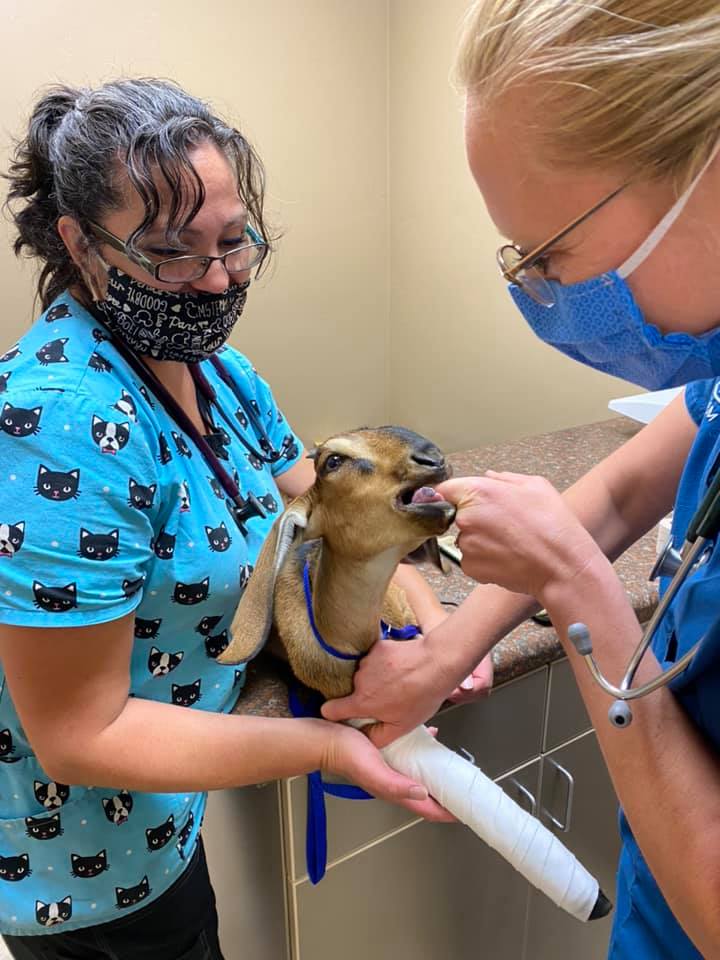
Equine Wellness Exams at Continental Animal Wellness Center
CAWC offers a comprehensive horse health and wellness exam package that includes the following services:
- Body Condition Score
- Heart Murmurs and other abnormalities
- Equine Cushing’s Disease
- Osteoarthritis
- Uveitis
- Masses & Growths
- Oral Health
- Lameness
CAWC has curated a comprehensive horse health care package. Throughout the month of April, we celebrate Equine Month, offering a discounted package that includes a float, a fecal exam, and all necessary vaccines at a 15% discount.
We Offer the Following In-Home Services for Large Animals:
-
Sick and well patient exams
-
Power floats
-
Vaccinations
-
Coggins and health certificates
-
Laboratory bloodwork
-
PPID/ EMS testing and monitoring
-
Digital radiology
-
Small ruminant/pig hoof trims
Schedule Your Appointment with an Equine Vet in Flagstaff, AZ
Following these essential goat and horse health care tips and scheduling regular checkups is the best way to keep your horses or goats in tip-top shape. Contact our equine vet to schedule your appointment today!
For more information, check out our Spring Equine Services video blog! Happy riding!

